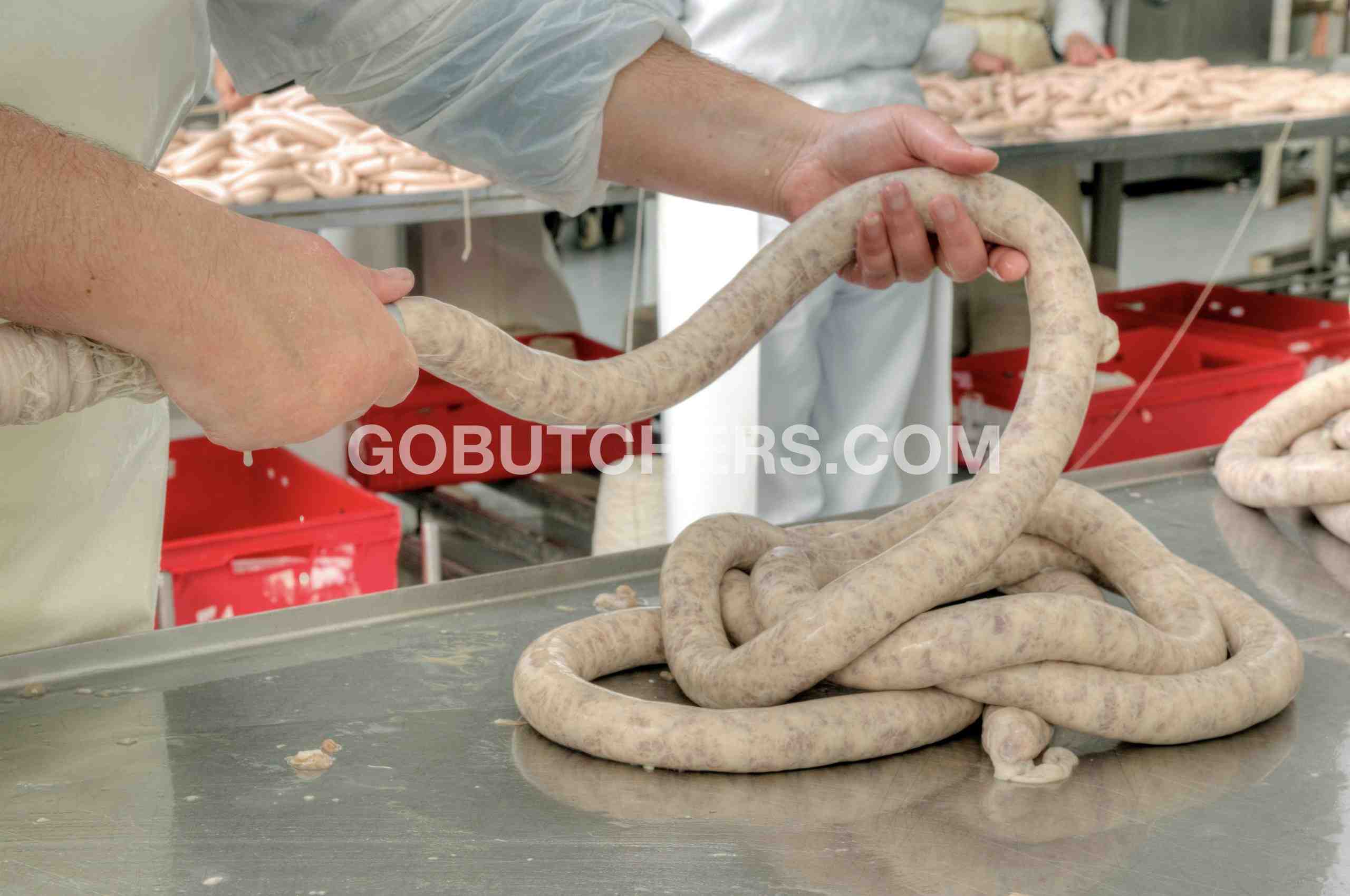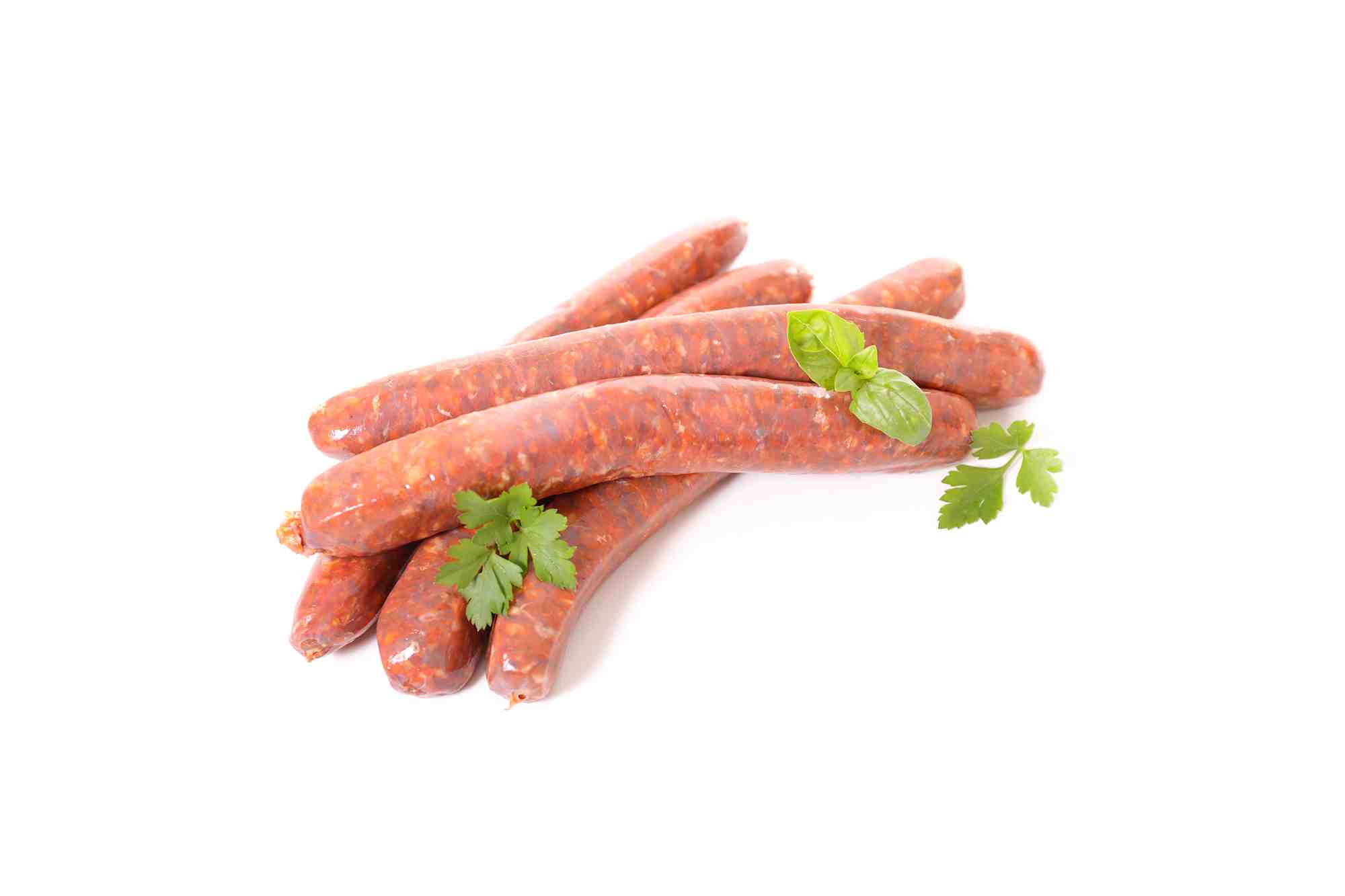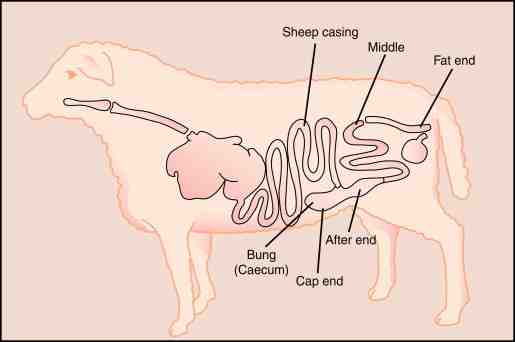How long do natural hog casings last?

Maintenance of natural casing Pack the casing in an airtight container and cool. DO NOT FREEZE! Freezing a natural gut will weaken it, and it will not be good after it has thawed. This may interest you : Is kielbasa an intestine?. Properly stored natural casings can last under cooling for at least one to two years.
How long can you keep natural pig intestines? If you store them properly, you can use them for the next batch of sausages. What is this? But this is where the problems start. Did you know that a sufficiently stored natural gut can last for up to two years?
How can you tell if a hog casing is bad?
How long do fresh hog casings last in fridge?
Maintenance of natural intestine MUST NOT BE FREEZED! Freezing a natural gut will weaken it, and it will not be good after it has thawed. This may interest you : What is Richmond sausage skin made of?. Properly stored natural casings can last under cooling for at least one to two years.
Can hog casings go bad?
Does the sausage casing get bad? Yes, natural sausage casings can be bad, and not storing the casings at the right temperature is a common cause. What is this? However, some types have a naturally strong odor (such as pork intestine), so be careful not to confuse it with the smell of a sausage casing that has become bad.
Is collagen a pork or beef casing?

Collagen sleeves are made from collagen derived from animal skins, tendons or bones. Read also : Is pig intestine used for sausages?. They are usually made from pork and beef, but fish and poultry can also be used for this purpose.
Can you eat beef collagen gut? A very large intestine is not meant to be eaten. Although collagen casings are generally edible, some salami types have a thicker casing that you can not really chew. The plastic casing is easy to recognize – it does not taste very good, and it is impossible to chew.
Is beef collagen casing beef?
Sleeves made of collagen usually come from a layer of beef skin. The collagen is removed and refined and formed into a tubular casing for filling meat intended for sausage and snacks.
What is beef collagen casing made of?
“Collagen” casings (man-made edible) are usually made from collagen derived from animal skins. Inedible casings are usually made of either cellulose or plastic.
Is beef collagen casing healthy?
Collagen sleeves are made of safe materials, and the collagen extraction methods used make the holsters completely free of all health risks. Edible collagen sleeves provide a superior yield based on finished materials, longer wrinkled lengths and high-speed filling capabilities.
What is collagen casing made out of?
“Collagen” casings (man-made edible) are usually made from collagen derived from animal skins. Inedible casings are usually made of either cellulose or plastic.
Is collagen casing edible?
Although collagen casings are generally edible, some salami types have a thicker casing that you can not really chew. The plastic casing is easy to recognize – it does not taste very good, and it is impossible to chew.
Is collagen casing good for you?
Collagen sleeves are made of safe materials, and the collagen extraction methods used make the holsters completely free of all health risks. Edible collagen sleeves provide a superior yield based on finished materials, longer wrinkled lengths and high-speed filling capabilities.
Why are sausage skins so tough these days?

Natural intestines are often salted to keep them firm and protect them from bacteria. Unfortunately, the salt also tends to harden the casings. Soak the intestines in water and vinegar from four hours until overnight. The water will soak up the salt, and the vinegar will soften the lids.
Why is some sausage casing tough? You have not washed the casings properly When you first get the casings, they are usually tough. If you have skipped washing and rinsing them, it may be because the cover was sticky after smoking or grilling.
How do you soften sausage casings?
How do you cook sausage so the skin isn’t tough?
It is best to take the sausages out of the fridge approx. 20 minutes before you start cooking them. Jeff explains that this helps the sausages to cook evenly and reduces the risk of the skin breaking in the pan. Place a thick, non-stick frying pan on the hob on low to medium heat.
How do you make sausage casings tender?
First, prepare a lukewarm water bath with a splash of vinegar and soak the entire bundle with casing for at least one hour up to a few hours or overnight. The vinegar helps to soften the intestines even before you start the cooking process!
Why are sausage skins tough?
Jeff also emphasized that you should never deep-fry sausages as the harsh heat can cause the skin to become tough. Finally, if you fancy a crispy sausage, it’s always best to fry them over baking in the oven.
What causes tough sausage casings?
If you do not punch holes in the casing, grease heats up and air pressure builds up inside the casing while you smoke, which can cause the casing to crack and lose even more fat and moisture than it would otherwise. The less fat and moisture there is, the tougher the casing becomes.
How do you cook sausage so the skin isn’t tough?
It is best to take the sausages out of the fridge approx. 20 minutes before you start cooking them. Jeff explains that this helps the sausages to cook evenly and reduces the risk of the skin breaking in the pan. Place a thick, non-stick frying pan on the hob on low to medium heat.
How do you cook sausage so the skin isn’t tough?
More care is needed here, but it is still a simple process.
- Let the sausage simmer in hot water for 2-3 minutes.
- Remove sausage from hot water and rinse under cold water to prevent it from boiling further.
- Wipe the sausages with a paper towel.
- Use a knife to make a shallow cut along the entire length of the sausage.
How do you know if a natural hog casing is bad?

Does natural pig intestine get bad? Yes, natural sausage casings can be bad, and not storing the casings at the right temperature is a common cause. However, some types have a naturally strong odor (such as pork intestine), so be careful not to confuse it with the smell of a sausage casing that has become bad.
How long can you keep salted hog casings?
You will store them in the refrigerator to keep them for up to two years. If you want to ensure that they last as long as they can, it is also recommended to use salt.
Do salted hog casings need to be refrigerated?
Basically, do not put them in the freezer or store them on a shelf as they may dry out or become rancid. Whether it’s pork, mutton or beef, just make sure your intestines are safely refrigerated so you can go back to using them the next time you make sausages.
How long do salted sausage casings last?
Maintenance of natural intestine MUST NOT BE FREEZED! Freezing a natural gut will weaken it, and it will not be good after it has thawed. Properly stored natural casings can last under cooling for at least one to two years.
How long will natural hog casings last?
DO NOT FREEZE! Freezing a natural gut will weaken it, and it will not be good after it has thawed. Properly stored natural casings can last under cooling for at least one to two years.
How long can you keep natural casing?
By storing the sleeves correctly in the refrigerator, they can last for up to two years. This is a very long time and you may be surprised to hear that they can stay good for so long. They will not last as long if you freeze them or leave them outside at room temperature.
What is the shelf life of hog casings?
Shelf life of natural pig and sheep casings – If they are unopened and stored in a refrigerator or freezer, you can expect to get 12 months from these casings, but keep in mind that these are a natural product, not a manufactured one, so times may vary.
Is collagen casing edible?
Although collagen casings are generally edible, some salami types have a thicker casing that you can not really chew. The plastic casing is easy to recognize – it does not taste so good and it is impossible to chew.
Are collagen meatballs edible? Collagen sausage sleeves are made of an edible material and are a popular choice when making snack sticks, brats and smoked sausages. These sleeves can not be soaked in advance, so they are ready for use straight out of the package.
Are collagen sausage casings edible?
Most collagen casings are edible, but a special form of thicker collagen casings is used for salami and large-caliber sausages where the casing is usually peeled from the sausage by the consumer.
What sausage casings are edible?
Sausage casing holds and shapes the meat and spices inside to keep it all inside. Johnsonville casings come in natural and synthetic varieties, all of which are edible.
Can you cook collagen casing?
Collagen intestinal sausages are easy to prepare, inexpensive and look good. The most important thing is that they give a tender bite and a nice “knack” – the well-known snap sound you expect when you bite into the perfect sausage.
Is collagen casing good for you?
Collagen sleeves are made of safe materials, and the collagen extraction methods used make the holsters completely free of all health risks. Edible collagen sleeves provide a superior yield based on finished materials, longer wrinkled lengths and high-speed filling capabilities.
Are collagen casings better than hog casings?
Synthetic casings Sometimes bones and tendons are included, and the intestines can also be made of poultry and fish. An affordable choice, collagen gut is easier to use than natural gut, as they provide better weight and size control of the sausage.
Is collagen casing natural?
“Collagen” casings (man-made edible) are usually made from collagen derived from animal skins.
Is pork casing Haram?
Islamic dietary law strictly prohibits the consumption of pork and pork products, which are the main ingredient in many sausages. In addition to minced pork as sausage filling, pork intestines are also sometimes used as sausage casings. None of these are acceptable to observant Muslims.
Is sausage halal in Islam? Under Islamic law, it is forbidden for Muslims to eat pork. The type of sausage offered was blutwurst – or “blood sausage” – which is made from ingredients such as pork blood, pork and bacon.
Is sheep casing halal?
Yes. All the animals our intestines come from are killed according to the Halal regulations.
Can you eat sheep casing?
Sausage casing removal Johnsonville gut comes in natural and synthetic varieties, all of which are edible. Basically, chopping off a sausage gives you access to the meaty delicacy inside, so you can use minced meat for other recipe ideas.
What is natural sheep casing?
Usually, “natural” sausage casings are made from the lining of the intestines of meat animals (beef, sheep and pork).
What is pork casing made of?
Sleeves are made of two basic materials, cellulose or collagen. Five specific intestines are commonly used in the production of sausage products – animal, regenerated collagen, cellulose, fibrous and plastic.
Are all sausages in a pork casing?
Traditionally, chain sausage is stuffed into natural casings made from the intestines of animals, but artificial casings are also available on the market. These days, most commercial sausages use synthetic casings.
Are sausage casings made of plastic?
Sausage casing is divided into two categories: natural and artificial. Natural intestines are made from animal intestines, while artificial ones are made from plastic, cellulose or collagen.
Is Hot Dog halal in Islam?
“In Islam, dogs are considered unclean and the name cannot be related to halal certification,” he said.
Can hot dogs be halal?
Boxed Halal’s Halal Beef Hot Dogs come from human-bred and hand-slaughtered cows. Each Halal Beef Hot Dogs pack contains 6 francs, making them perfect for entertaining and grilling!
What is halal hot dog made of?
Halal sausages usually contain lamb, beef or chicken. Islamic dietary law strictly prohibits the consumption of pork and pork products, which are the main ingredient in many sausages. In addition to minced pork as sausage filling, pork intestines are also sometimes used as sausage casings.
Sources :
